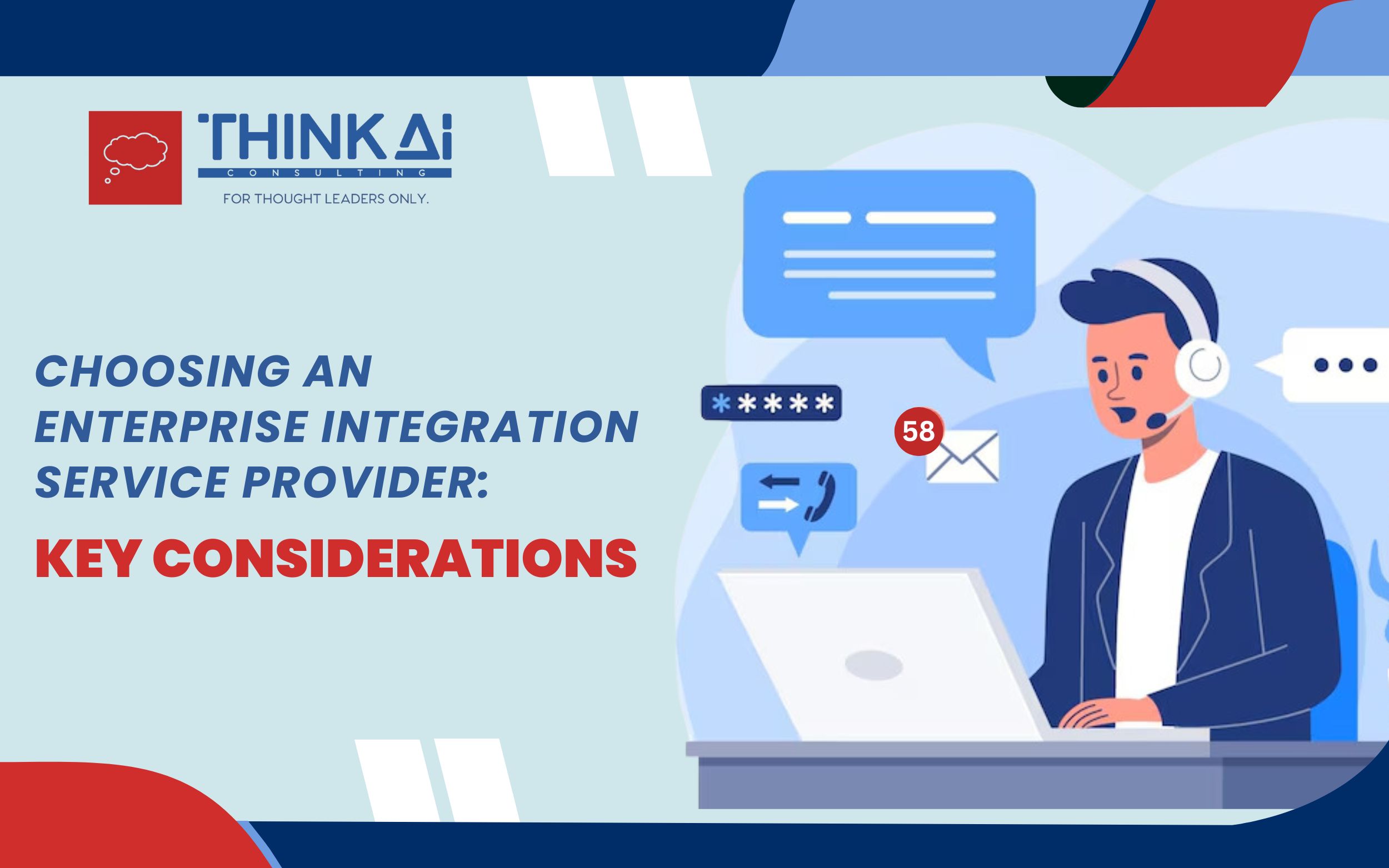Enterprise integration services play a pivotal role in streamlining IT system integration across diverse platforms and applications. Choosing a service provider for the same goes beyond mere vendor selection; it’s about strategically aligning technology investments with business objectives.
Enterprise integration services consist of strategies, technologies, and processes that facilitate efficient communication and data exchange between different applications, systems, and platforms within an organization. The goal is to unify disparate IT systems and streamline business processes.
It ensures that data flows efficiently across departments and enables real-time access to critical information.
Integrating various software applications and data sources helps organizations enhance operational efficiency.
It also improves decision-making capabilities and achieves greater agility in responding to market demands.
Enterprise integration solutions range from integrating cloud applications and on-premises systems to leveraging APIs, microservices, and IoT devices. All of these efforts aim to create a cohesive and interconnected IT environment that supports business growth and innovation.
A well-chosen provider can empower your organization with scalable solutions, reliable data security measures, and adaptability. Conversely, a poor Enterprise Integration Strategy can lead to costly disruptions, security vulnerabilities, and inefficiencies in IT operations.
Common Challenges in Vendor Selection
Business leaders often encounter several challenges when evaluating integration service providers:
Transparent Pricing Models: Ambiguous pricing structures and hidden costs can lead to budget overruns. Clear, detailed cost breakdowns are essential to understanding the total investment required.
Scope Definition and Deliverables: Unclear expectations regarding project scope and deliverables can result in misalignment and project delays. Defining these aspects upfront is crucial for project success.
Cost Analysis and Planning: Inadequate financial planning and cost estimation can lead to unexpected expenses and budgetary constraints during integration projects.
Integration Complexity: Dealing with diverse technologies, legacy systems, and complex data structures requires a thorough understanding of integration challenges and a robust implementation strategy.
Data Security Concerns: Protecting sensitive data from breaches and ensuring compliance with regulatory standards are critical considerations in selecting an integration service provider.
Change Management: Managing organizational resistance and facilitating smooth transitions to new integration systems are essential for successful adoption and user acceptance.
Key Considerations in Choosing an Integration Service Provider
Selecting the right integration service provider requires careful evaluation of various factors that align with organizational goals and operational requirements:
Alignment: Ensure the provider’s capabilities align with your organization’s long-term business objectives and digital transformation strategy. Look for expertise in integrating technologies relevant to your industry and operational needs.
Technical Expertise: Assess the provider’s experience and proficiency in integrating complex systems, legacy applications, cloud-based solutions, and emerging technologies like IoT and AI.
Scalability and Performance: Evaluate the scalability of the integration platform to handle increasing data volumes, transactions, and user loads without compromising performance or reliability.
Security and Compliance: Data security is paramount. Verify the provider’s security measures, including encryption standards, access controls, compliance certifications (e.g., GDPR, HIPAA), and their track record in data protection.
Integration Flexibility: Look for a provider capable of supporting various integration patterns (e.g., point-to-point, hub-and-spoke, ETL) and adapting to future technology trends and business requirements.
User Experience: A user-friendly interface and intuitive tools empower integration specialists and business users to collaborate effectively, reducing time-to-market for new integrations and updates.
Cost Efficiency: Beyond initial implementation costs, consider long-term expenses such as maintenance, support, and scalability. Transparent pricing models and clear cost projections help avoid budget overruns.
Think AI: Empowering Enterprise Integration Solutions
Think AI stands out as a trusted strategic partner for enterprises navigating complex integration challenges. Specializing in AI, business intelligence, and chatbot technologies, it helps businesses solve intricate business problems.
Their expertise spans across:
Core Technology Services: Providing comprehensive consulting services to align technology investments with organizational goals.
Chatbot Services: Offering customizable chatbot frameworks that enhance customer engagement and operational efficiency.
BI Assessment & Roadmap: Conducting thorough assessments of modern data warehouses to optimize data management and analytics capabilities.
Enterprise Integration Services: Enabling seamless application and data integration to support new customer experiences and scalable service delivery.
Think AI distinguishes itself with a commitment to delivering high-quality, scalable solutions tailored to meet the unique needs of each client. Their approach combines local leadership with a global team of subject matter experts and solution architects.
In Conclusion
For enterprises seeking to enhance their integration capabilities, partnering with a reputable provider like Think AI can pave the way for sustainable success and a competitive advantage. Want to know more? Send us an email at [email protected], and we’ll be happy to assist you further.

